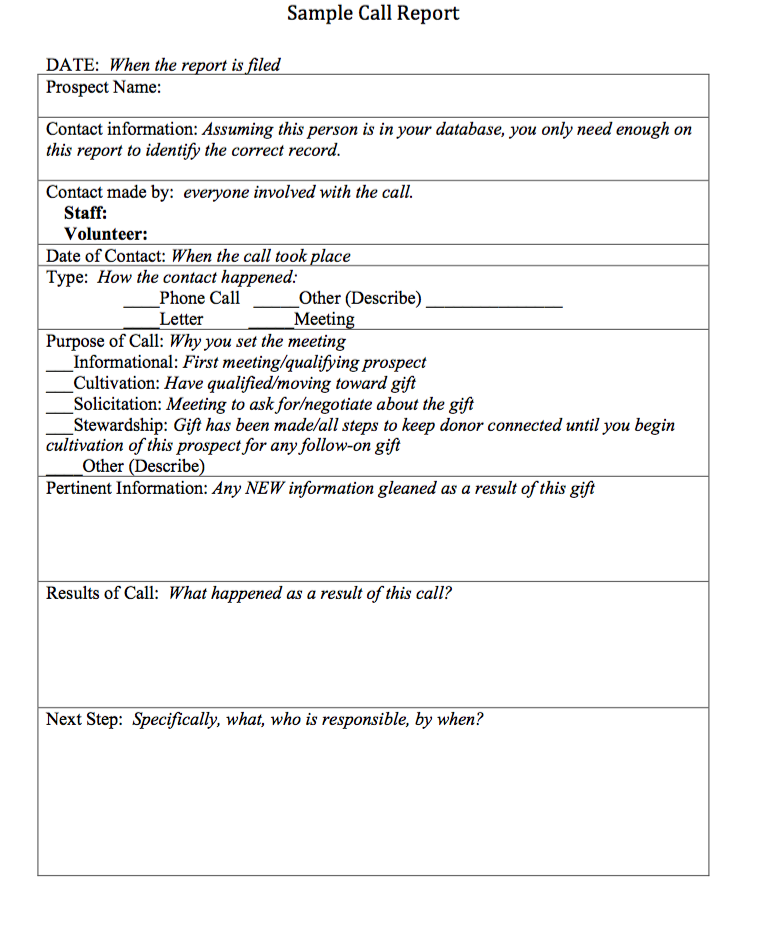Write It Down
“The meeting was good,” the development director said. I waited, and when nothing else was forthcoming I asked what seemed to me the inevitable questions, “Why was it good.” “Oh,” she said, “we had a really good conversation.”
Shoot me (or maybe shoot her) now.
I hear, and have heard, this sort of non-helpful conversation for over 40 years. When I was a front line fundraiser, my boss—rightly—required that within 48 work hours of a contact (be it via phone, mail—it was too long ago for electronic communications—or in person) outlining what had taken place. This call report clearly stated who was involved, when the contact occurred and the method of contact.
I was required to put in writing what took place, if I had learned anything new about the
 prospect/donor, and what our next steps were. My boss would then use my contact reports to follow with me to ensure that those next steps took place. And that I had additional next steps.
prospect/donor, and what our next steps were. My boss would then use my contact reports to follow with me to ensure that those next steps took place. And that I had additional next steps.
The result was very simple: I raised quite a lot of money. Even when I became a one person office, I wrote reports of every meeting, every move, every time I interacted with my prospects and donors. And I continued to raise a good amount of money.
When I managed staff—development, communications, government relations, etc—I demanded that they used call reports. And I confess, either I wasn’t the manager my first boss was, or my staff wasn’t as committed as I had been. It was often quite a battle. The result was also simple: Not as much money was raised, not as much press coverage occurred, and not as much of everything else seemed to happen. And, worst of all, too many balls were simply dropped.
I give every single client call report templates. We talk about why documenting is important and what information their organization needs to have. And those who use the call report or create one that works best for them, they have success. When they don’t—they don’t.
I don’t want to sound as if documenting meetings is the magic bullet to raising money. It’s not. But is one of the key elements that will ensure a successful fund development (or communications, government relations, you name it) program. Saying you had a good meeting is meaningless. Good meetings occur when you have a frank exchange of information, when there are outcomes that meet needs, and when there is a clear path to the next step in the relationship. And those things must be documented so that if you were to close your door on that job forever, the person who next opened it could continue on the path you started on, and move the process to the result that is desired.
Janet Levine works with nonprofits, helping them to increase fundraising results. Learn more at www.janetlevineconsulting.com. When there, sign up for her monthly newsletter and contact her for a free 30 minute consultation.
